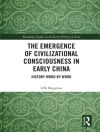Winner of the National Huguenot Society’s 2022 Scholarly Works Award
The Huguenots and their struggle for freedom of conscience and freedom of worship are largely unknown outside of France. The entrance of the sixteenth-century Reformation in France, first through the teachings of Luther, then of Calvin, brought three centuries of religious wars before Protestants were considered fully French and obtained the freedom to worship God without repression and persecution from the established church and the tyrannical state. From the first martyrs early in the sixteenth century to the last martyrs at the end of the eighteenth century, Protestants suffered from the intolerance of church and state, the former refusing genuine reform and unwilling to relinquish privileges, the latter rejecting any threats to the absolute monarchy. The rights gained with one treaty or edict of pacification were snatched away with another royal decree declaring Protestants heretics and outlaws. Political and religious intrigues, conspiracies, assassinations, and broken promises contributed to the turmoil and tens of thousands were exiled or fled to places of refuge. Others spent decades as slaves on the king’s galleys or imprisoned. They lost their possessions; they lost their lives. They did not lose their faith in a sovereign God.
เกี่ยวกับผู้แต่ง
Stephen M. Davis is an elder at Grace Church in Philadelphia (gracechurchphilly.org). He holds a Ph D in Intercultural Studies from Columbia International University and a DMin in Missiology from Trinity Evangelical Divinity School. He is the author of eight books including four on French history: Rise of French Laïcité in the Evangelical Missiological Society Monograph Series, The French Huguenots and Wars of Religion, French Protestantism’s Struggle for Survival and Legitimacy (1517–1905), and The War of the Camisards (1702–1704): Huguenot Insurrection during the Reign of Louis XIV.












